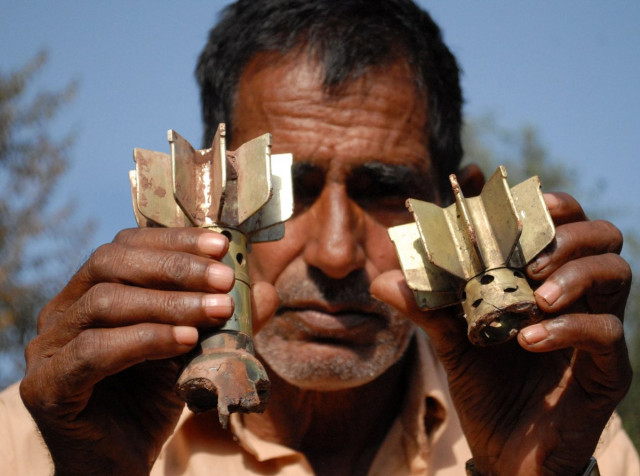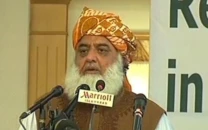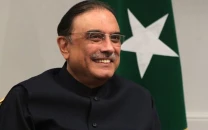Comment: India’s punitive policy
Pakistan's India policy suffers from incoherence and a failure to recognize the new dynamics of this relationship

The troubled India-Pakistan relations have now drifted to a crisis situation. The cancellation of the foreign secretary level talks scheduled for August 25 coincided with escalated tension on the Line of Control (LoC) in Kashmir and the Working Boundary that separates Indian administered Kashmir from Pakistani territory. The clashes of troops in the latter location became intense in the first week of October.
The bilateral relations deteriorated to such an extent despite Pakistan’s best efforts to salvage the bilateral dialogue process stalled since the end of 2012. Pakistan’s Adviser on National Security and Foreign Affairs Sartaj Aziz’s statement in an interview with an Indian newspaper, reported in Pakistani press on September 29, aimed at reducing India’s irritation on the meeting of Pakistan’s High Commissioner in New Delhi with Kashmiri leaders on August 18-19. He described this meeting as somewhat ill-timed.
The proposed Foreign Secretary level talks were cancelled by India shortly after Pakistan’s High Commissioner in New Delhi met with a Kashmiri leader, Syed Shabbir Shah on August 18. This meeting was described by India’s Ministry of External Affairs as an effort “to interfere in India’s internal affairs.” On August 19, Pakistan’s High Commissioner met three Kashmiri leaders. India’s reaction to the first meeting was uncalled for because Pakistan’s High Commissioner used to meet the Kashmiri leaders from time to time in the past. Many a time, Pakistan’s Foreign Minister on visit to New Delhi met the Kashmiri leaders. Therefore, the meeting in August was not a new development.
The effort by Sartaj Aziz to dilute the negative diplomatic impact of the meeting was also surprising. Why should he complain about its timings? After all, Pakistan’s High Commissioner in New Delhi must be acting on the direction of the Foreign Office. If this was not the case, who directed him to engage the Kashmiri leaders? If the High Commissioner acted on his own, he should be reprimanded especially because the Secretary-level talks were not focused on Kashmir.
There is nothing wrong in Pakistan’s desire to improve and expand relations with India, including trade and economic ties. However, its India policy suffers from incoherence and a failure to recognize the new dynamics of this relationship.
Since the Mumbai terrorist attack (November 2008) India has reduced the India-Pakistan relations to a single-issue relationship. That is, Pakistan must satisfy India on the terrorism issue before taking up the resolution of other issues. Whereas India, supported by the United States, blamed Pakistan based militant groups for the Mumbai incident and violence in Kashmir, Pakistan shied away from addressing this question.
India’s notion of “limited war” and “punitive action” short of triggering a full-war is now manifesting itself in the shape of repeated violence on the LoC. The previous and the present Indian army chiefs have talked of adopting a tough line towards Pakistan, reflecting the growing role of the Indian army in shaping India’s Pakistan policy.
Pakistan needs to evolve a definite diplomatic response to India’s punitive strikes against the backdrop of the sharing of ideas between India and the US for coping with the Punjab-based militant groups focusing on Kashmir, the US designation of some Pakistan militant groups as terrorists and the growing confluence of interest between the hardliners inside the ruling BJP and the Indian army.
How can Pakistan convince the international community that its fight against terrorism is inclusive of all militant groups and the Modi government is engaged in violence against Pakistan for domestic reasons in view of India’s state elections, including the forthcoming Kashmir elections?
Published in The Express Tribune, October 10th, 2014.



















COMMENTS
Comments are moderated and generally will be posted if they are on-topic and not abusive.
For more information, please see our Comments FAQ